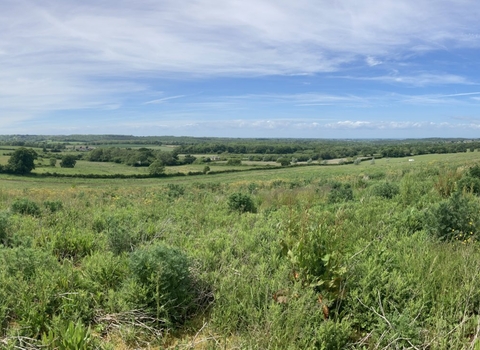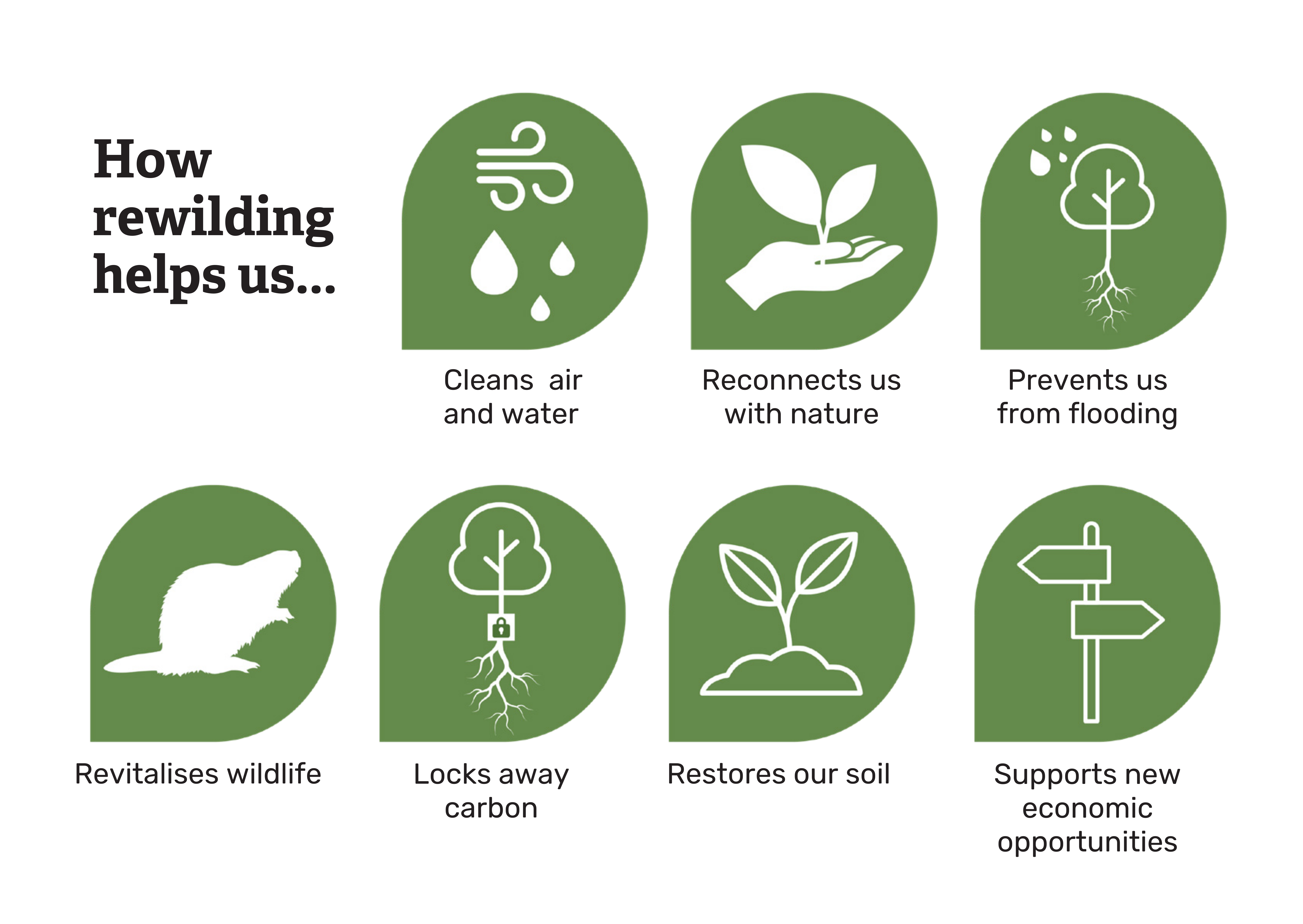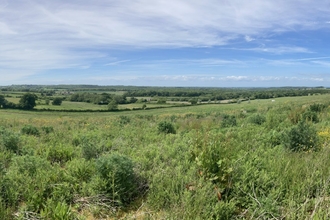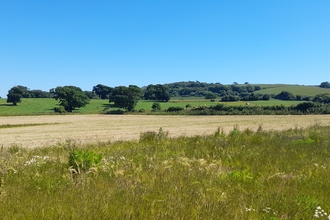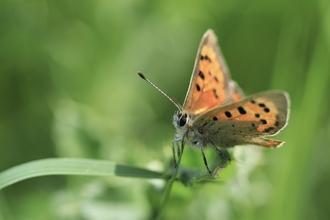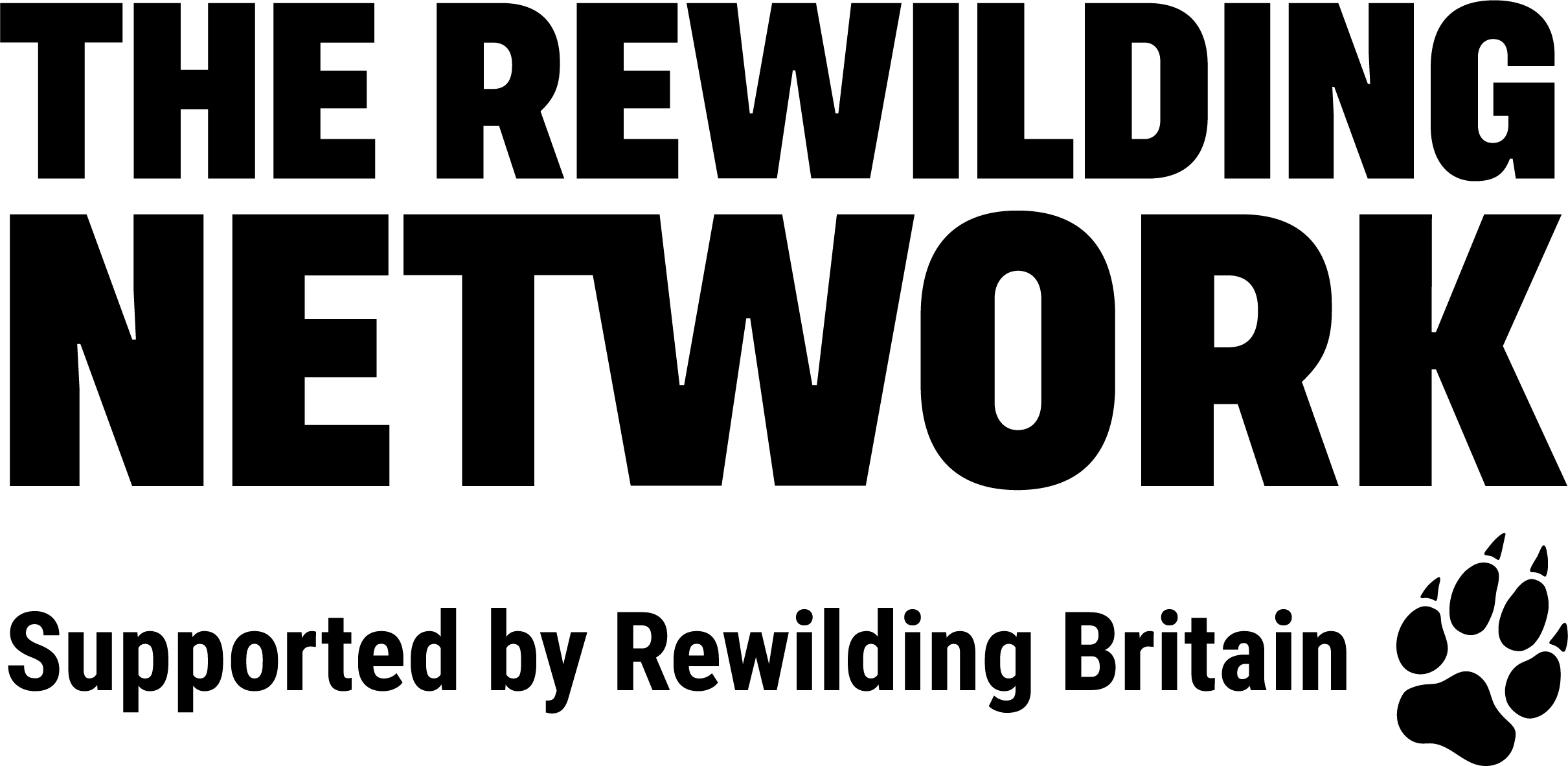Nature is in crisis. More than half of our species are in decline and 15% are threatened with extinction. Traditional nature conservation has worked hard for decades, with passion and dedication, to save wildlife, but nature reserves alone are not enough to tackle the biodiversity crisis. As well as protecting the fragments of wildlife rich habitat that we have left, we need to start restoring ecosystems at scale. As part of our vision for a wilder Hampshire and Isle of Wight, we want to see rewilding making a meaningful contribution to local nature recovery so that at least 5% of our landscapes are rewilded as part of our 30% nature recovery goal.
What is rewilding?
Rewilding aims to restore the natural processes that support life (for example, grazing, flooding, natural woodland regeneration) and reinstate missing species (for example keystone species such as beavers), allowing them to shape the landscape and the habitats within. Rewilding supports nature’s ability to look after itself and us by providing essential ecosystem services such as nutrient cycling, carbon capture and pollution removal. It complements existing conservation work and sustainable land uses such as regenerative farming.
Five principles for rewilding:
Support people and nature together
Rewilding is about all of us finding ways to work and live within healthy, flourishing ecosystems. Rewilding can enrich lives and help us to reconnect with wild nature while providing a sustainable future for local and wider communities.
Let nature lead
From the free movement of rivers to natural grazing, habitat succession and predation, rewilding seeks to reinstate natural processes. This includes reintroducing missing species where appropriate, particularly keystone species. It is not geared to reach any human-defined optimal point or end state. It goes where nature takes it.
Create resilient local economies
Rewilding creates opportunities for resilient new nature-based economies. It’s about finding opportunities for livelihoods that thrive alongside, and enrich nature.
Work at nature’s side
Rewilding is restoring ecosystems with enough space to allow nature to drive the changes and shape the living systems on which we all depend. Scale may come from single landholdings or through joining up nature so it can thrive from mountain top to doorstep, from source to sea.
Secure benefits for the long-term
Rewilding leaves a positive legacy for future generations. Securing the continued, long-term benefits of rewilding areas is key to a healthy, prosperous future.
Our rewilding projects
As well as our nature reserves and landscape restoration projects, the Trust has recently taken on two rewilding sites, both ex-arable farms on the Isle of Wight. Our aim is to kick start natural processes to help wildlife bounce back and thrive here, as part of the local nature recovery network. We are excited that several other landowners across Hampshire and Isle of Wight are already rewilding, or considering it, and we hope through the creation of the local rewilding Network we can learn from each other as we restore our landscape and help wildlife to bounce back.
Hampshire & Isle of Wight Rewilding Network
The Hampshire & Isle of Wight Rewilding Network is a dedicated network for rewilding and regeneration of land for wildlife in Hampshire and on the Isle of Wight. By connecting local rewilders we aim to raise the standard of rewilding through shared learning, access to specialist knowledge and improved ecological monitoring. The network aims to bring together landowners who are making space for nature through habitat restoration and wildlife-friendly management.
The network is run by the Hampshire & Isle of Wight Wildlife Trust, which has an exemplary history in managing nature reserves for wildlife. Since 2021 the Trust has taken on over 180 hectares of ex-arable land as rewilding projects and hopes to increase this repertoire soon. Comprehensive ecological and environmental monitoring programmes have been set up to inform site management and to evidence the benefits provided for nature.
The aims of the Hampshire & Isle of Wight Rewilding Network are:
- Aim 1 – Raise the standard of rewilding in Hampshire and the Isle of Wight through shared learning and promotion of ecological monitoring
-
Aim 2 – Contribute to the Trust’s goal to see wildlife recovering over at least a third of land and sea
-
Aim 3 – Engage with local landowners and encourage positive action for wildlife through advocacy, communications and story telling
Membership:
Membership of the network is free and you can register below. To be eligible you must be a landowner who is restoring (or considering restoring) land for nature at scale. This could be through rewilding or habitat restoration/creation. The benefits of becoming a member include:
-
Being part of a network of rewilders working towards the same goals
-
Learning from others’ experiences through site visits and discussions
-
Connecting with rewilding and wildlife experts

